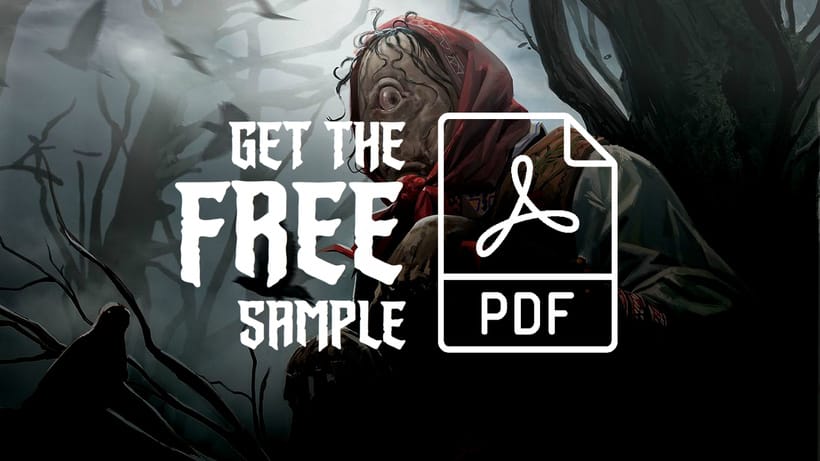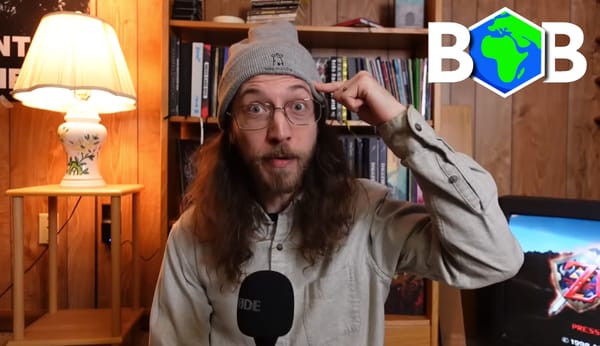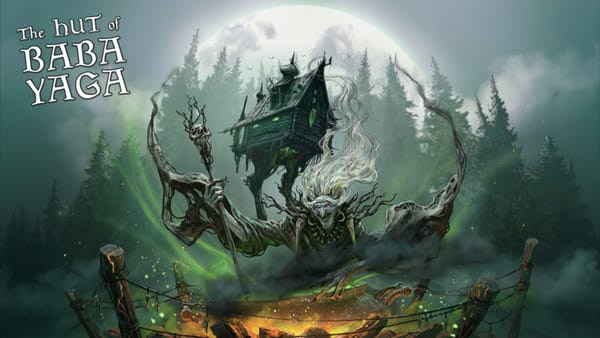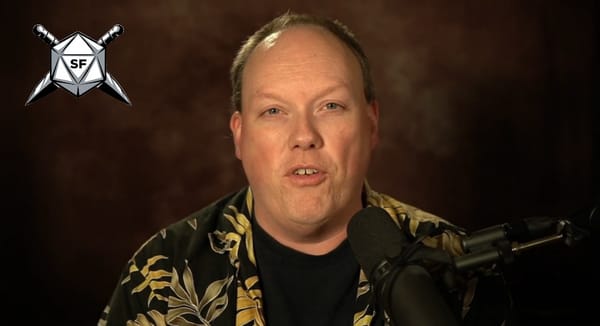Back to the Dungeon: How Jon Torres Revived the Spirit of Old-School Play
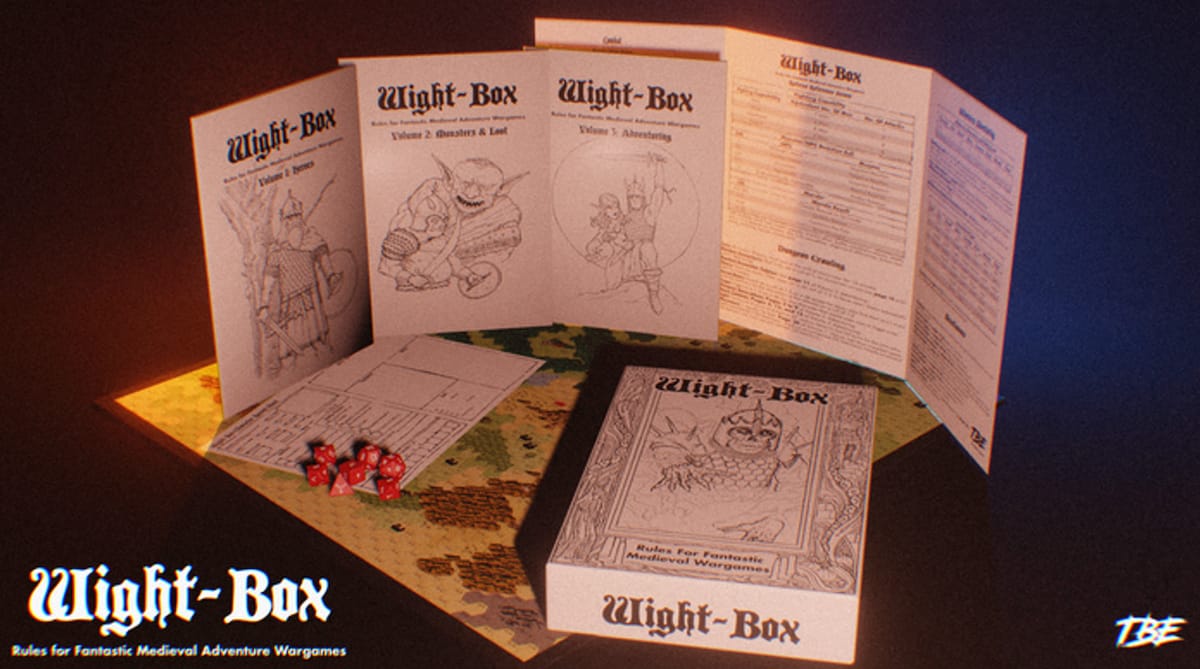
In the world of tabletop RPGs, one question keeps resurfacing: what does it really mean to play “old school”? Is the OSR (Old School Renaissance) simply nostalgia for yellowed rulebooks and pencil-scribbled character sheets, or is it a conscious rebellion against the narrative-driven, commercially polished design of modern games? For Jon Torres, creator of Wight-Box, the answer is clear: OSR isn’t a museum of dead mechanics. It’s a living laboratory of ideas.
Torres began with the fourth edition of Dungeons & Dragons — arguably the most “modern” and controversial of them all. But after years of running games, he found himself drawn to something older, rawer, and freer. Through Basic Fantasy, OSRIC, and eventually the original D&D booklets from the 1970s, he discovered that early editions weren’t primitive — they were open. “Old games give you tools to create adventures on the fly. Modern ones try to tell you how to tell the story,” he explains.
His Wight-Box is a tribute to that original spark — a set of three booklets inspired by the “white box” D&D from 1974. But it’s not just an act of homage; it’s a reconstruction. Torres fused elements of Chainmail and 0e D&D, reorganizing their chaotic brilliance into something coherent and playable for a new generation. It’s both a restoration project and a manifesto.
In our conversation, Torres talks about what OSR really means — about curiosity rather than nostalgia, about the freedom of improvisation, and about the decline of Dungeons & Dragons’ corporate dominance. He also speaks passionately against the growing use of artificial intelligence in creative work: “AI doesn’t make art; it makes filler. It’s a glorified search engine,” he says.
This interview dives into the creative process behind Wight-Box, the lessons of early game design, and the strategies that made his Kickstarter campaign a success. More than that, it’s about passion, craftsmanship, and the belief that even in the age of algorithms, storytelling still belongs to the human imagination — a handful of dice, a sheet of paper, and a spark of wonder.
Onwards!
Where did your interest in the OSR come from, and what does returning to the “roots” of RPGs mean to you?
My interest in the OSR happened after a good amount of time in more modern games. I got my start in D&D 4e (I know), and played a lot of 5e. As I grew as a referee, I realized some things were not adding up. Some things didn’t make sense. Some rules, even in 5e and 4e, referenced ideas that seemed almost vestigial in nature. I have a friend who is a bit older than me, and unlike me, played in his youth, specifically AD&D and BX. He told me that people still play these games and still make content for them and that led me down a rabbit hole of looking at older games. My first OSR games I looked at were Basic Fantasy and OSRIC. I really liked these games and ran a number of games in them. But I realized that this was someone telling me how they think those editions should be played. I wanted to know what those editions actually said and interpret them for myself. That’s when I started looking directly at the originals and reading them and running them for myself. Personally, I think going back to the roots is going back to these sources and understanding them.
How would you define the main difference between the OSR approach and modern mainstream RPG design?
First I will say there is a lot in common. Both (and this will be controversial to MANY) is that they rely too much on Rule Zero and Referee fiat. In that regard, they are similar. However I think the modern game is very much focused on this aspect to serve a well prepped story or narrative. The referee is either running a module or a homebrew campaign they put a lot of effort into. Old school games rely more on spontaneity. And this is where they apply fiat. Instead of serving a pre-written story, it is to serve an emergent story. Older games give you far more generative tools to work with so that you can create on the fly and react in real time to what your players do. I like this approach more, even if I disagree with some aspects of how fiat is applied. I think the spirit and heart of this style of game is actually very appealing and can get as good or better results than the modern mentality can.
Do you see OSR as primarily nostalgia-driven, or as a conscious counterproposal to contemporary games?
I think this varies from person to person. I’m younger than many and did not play D&D in my early youth. I don’t have the nostalgia that someone who was there in the 70s and 80s has. So for me, it’s more trying to find the source and meaning of this hobby and game. I think over the last 50 years, a lot of things have changed in how we play, present, and run games. I think it’s worth looking back at the start or in the early days and see what is said. It’s a logical fallacy to think just because something is new it is better just as it is a logical fallacy to think just because something is old is better. I love designing games and I find the design choices of these early games and editions very compelling to me to learn from as well.
How did the idea for Wight-Box come about, and why did you choose the three-booklet format in the style of the 3LBBs?
Funnily enough, I was sort of bullied and goaded by friends on my old Guilded server. We were talking about 0e and running a lot of 0e and the topic came up between us all. Many of them, who I thank in the book, provided feedback to me on interpretations of rules. I wasn’t even close to right about a great many things. But the idea was more of a thought experiment. We were interested in this snapshot in gaming history when 0e came out but Greyhawk was not yet out. How would you run that game? I realized many people had not captured that game in a way I found satisfactory.
What was your creative process like when adapting elements from Chainmail and original D&D?
Really, to me, Chainmail is very much plug and play into D&D for the most part. I think what is called the “Alternative Combat System” in 0e (the d20) is too iconic to get rid of. Chainmail has a dice pool system, a 2d6 man-to-man system, and a 2d6 system for heroic level mythical monsters. This tiered approach is neat, but I think the d20 is so entrenched in D&D you can’t actually have these varying resolution methods that are not a d20 and call it D&D at this point. But you can overlay a lot of elements to complete the Alternative Combat System like Fighting Capability, weapon class, and other factors. 0e doesn’t give you an order of operation for combat resolution, Chainmail does. All of these mechanics are not dependent on the resolution methods in Chainmail to work. They overlay the d20 system very smoothly and this has been proven in play testing. So the process was a lot of reading all four books, taking notes, and connecting dots.
What were the biggest challenges in developing Wight-Box – more mechanical or editorial?
Rewording the rules in an easier to understand way has been a challenge. Hopefully I succeed enough to make 0e far more accessible for many that want to try it. One of the hardest parts has been just scouring 0e and Chainmail for solutions to problems encountered. It’s not controversial to say the way the rules are presented is less than desirable for Chainmail and 0e. Oftentimes, a really important rule or how a rule is to be applied is not with the initial statement of a rule but in a monster stat block or an item description. So one has to always be flipping around to connect these dots. But once this is done, you really do realize that faults of 0e are not in its rules but just its presentation. The rules of Chainmail plus 0e are actually very robust once you suss them out. You get something on par with AD&D actually, even with just these four books. In fact I would say I prefer it over AD&D and I really love AD&D.
What community reaction to Wight-Box has stuck with you the most since its release?
Probably the people that are super excited for it. A number of people have told me they haven’t been this excited for a game in a long time and this both flatters and terrifies me. Just seeing people excited about old school gaming is incredible though.
How do you see the current state of the TTRPG industry – are we in a growth phase, stagnation, or the decline of D&D’s popularity?
I think we are in a decline in the hegemony of WotC 5th Edition D&D. I think the hobby will probably contract but I think those most affected, initially, will be the bigger publishers in more traditional business models. I think indies like myself will be relatively OK. The hard part will be that D&D was often the entrance point into the wider hobby, and if that goes away, will new blood enter the hobby? Is that really a problem to worry about? I don’t know. Ultimately I’m hopeful though. Indies are in a position to really take ground and make moves at this moment. We are not beholden to a board or investors. We can move with more agility as the market has ups and downs. Self publishing has never been easier and indies are making things as good or better than the big publishers. It’s just a matter of getting it all in front of eyeballs.
What consequences do you think the Hasbro and OGL controversies had for the wider RPG scene?
I think it showed the danger of having everything propped up by one license and one company and trusting them to behave with it. It certainly affected WotC’s reputation. And now people are looking at licenses with greater scrutiny. For Wight-Box, I want to have a license for third parties and I want to make sure it is easy to use and assure people they will have it in perpetuity. I think a lot of indies are doing the same with any licenses they hope to make. In short, it’s bad to bottleneck everything on one license with one company to prop up all creativity in the hobby.
Do you believe D&D’s dominance will fade in favor of smaller, independent OSR and indie projects?
I’m not sure but I hope it does. I think indies are doing WAAAAY cooler stuff than what WotC is doing. There is a flavor for almost everyone with indies. And as much as I love D&D, I think it's great to play non-D&D games. OD&D is probably my favorite game… But Classic Traveller is my second favorite and it’s so different from D&D. I think greater choice in the hobby will make for a more vibrant and interesting hobby.
How did you approach building the strategy for your Wight-Box Kickstarter campaign?
Well I was told by others who have done kickstarters before me to really push the prelaunch page for a month or two. I wasn’t in a hurry to launch even though I really wanted to. I knew that I needed a really great day one on the campaign and you get that by getting a lot of people hyped, signed up, and pledging on day one. Once I had about 700 or so prelaunch sign ups, I launched and only about 20% or so signed up on day one. I probably could have waited a bit longer but I think it still worked out.
Which pre-launch marketing actions turned out to be the most effective?
The prelaunch page was huge. Most of my pledges came from that. However, I don’t think the prelaunch page would have been as successful with sign ups if I didn’t have a decently sized Youtube channel. I have 6.86K subs on Youtube which isn’t huge, but that’s a decent soap box to promote my campaign on and build hype. Also, I think one thing that really helped was making a 3D render in Blender of the game and its components. People could see exactly what my vision is for the game.
How do you balance attracting new backers with keeping existing ones engaged and excited?
Updates. You have to keep them updated and showing progress. I think really explaining your game helps too. I tried to answer as many questions within my kickstarter that I knew backers would have.
What advice would you give to someone planning their first TTRPG crowdfunding campaign?
If you don’t have a platform like me, make connections with those who do. Go on streams and do interviews and really sell your game. Let your prelaunch page cook and stew. I know you want to launch right away because you are excited about your project, but you need to build hype and enough people who will back you day one or within the first 48 hours. Your goal, even if you don’t actually achieve it, is to get funded within the first 48 hours. This builds momentum and gets you in the Kickstarter algorithm which gets you discovered by others. You do this by having a big list of prelaunch sign ups. Again, not everyone who signs up for a prelaunch will back in the first 48 hours or at all. So push that prelaunch page, go on streams and promote, and build that prelaunch page.
What role does your community—Discord, YouTube, mailing lists—play in your creative process?
I often run ideas past my supporters. They also help play test ideas. This is a massive help for me to figure things out. I also share works in progress with them and ask them to play with the materials themselves which is helpful.
How do you keep your community engaged between major projects?
I’m in a position where my Youtube channel and its content helps keep people engaged with my content, products, and ideas. Honestly, I need to promote my stuff more there. Making video content about games, my games, and theories is super helpful.
Do you notice any differences between engaging an OSR audience and a more mainstream RPG audience?
Whew… Both can be very opinionated and I’m contentious too. I think to the mainstream audience you need to sell them on how the old school does things the new school can’t. Or how the old school has some things they like in a pure form like the sense of adventure and exploration. For old school guys, it’s a bit easier. They get all that. So you have to offer something they haven’t seen before. And one thing, in my opinion, that isn’t done enough of is a solidly researched repackaging of old rules. OSE did this and it was very successful for them. I think really delving into the old rules without any bias has actually really made other old school people interested.
How do you think AI will impact the process of creating TTRPGs—is it more of an opportunity or a threat?
I have a very dim view of AI. I think the use of AI as a shortcut in the hobby will just lead to a lot of slop. An increase in slop means good stuff gets buried. I hate seeing AI art in books. Art is supposed to be looked at to inspire you, and the longer you look at AI art, the worse it gets. Most people doing this see AI art as filler on the page to pad page count, not as art to inspire the reader. AI language models have such a stunted and obvious writing style too that everything will be slop and sound and look the same if we are not careful. I refuse to use it. I’m not impressed by what I have seen it do. Its only use is a glorified internet search engine.
Do you personally use AI in your work—for writing, art, or marketing support?
No. I don’t like it. I used Grammarly for a long time and a bit when they incorporated AI. I gave it a shot but it actively made my writing worse. I was paying for an account and I much preferred the platform before they made the changes they made. With Wight-Box, I hired an editor which I will probably do going forward. I have no need for generative AI art as I do my own illustrations too. I have my own style and I think it gives my books a cohesive feeling. And they look human too.
How do you envision the future of TTRPGs in a world where AI is becoming increasingly involved in creative industries?
I really hate it. I would encourage other creators not to use it. I think it makes your work look, sound, and read cheap. Why should anyone pay money for a book you generated that they themselves could generate without paying you? Part of paying for a book is paying for the creativity, the authentic creativity, of another person. Not for the results of the prompting skills. I can see some use with using AI as glorified spell checking and grammar correction, but like I said with grammarly, it sometimes makes things worse. All in all, I’m not worried. I think good human made stuff will outshine and outclass AI generated content or even partly AI generated or assisted content. The human brain thrives on creativity and offloading that to algorithms and a glorified madlib machine is just not good for a creative process and environment. At least for me.
Thanks!
This interview is presented in partnership with Strigovia.
Strigovia is a dark, Slavic-inspired tabletop RPG where what we call “magic” is not a gift, but a debt owed to the ancient Forest — a power that listens, remembers, and always collects. There are no carefree spells or heroic fireballs here, only whispered rituals, blood-bound bargains, and slow transformations waiting for those who ask for too much.
This is low-fantasy horror focused on survival, painful choices, and stories that linger long after the dice stop rolling.
